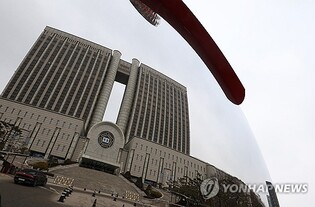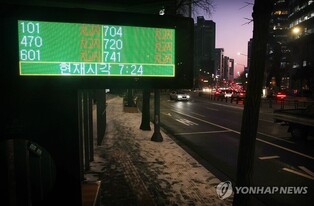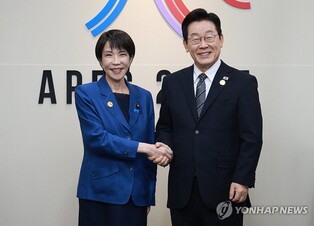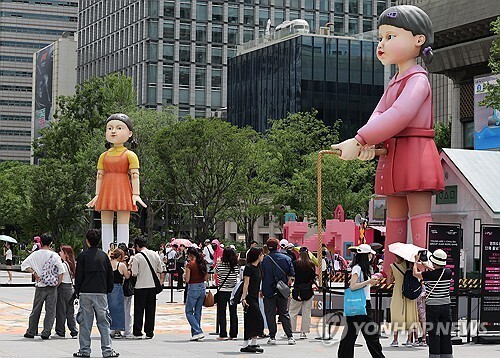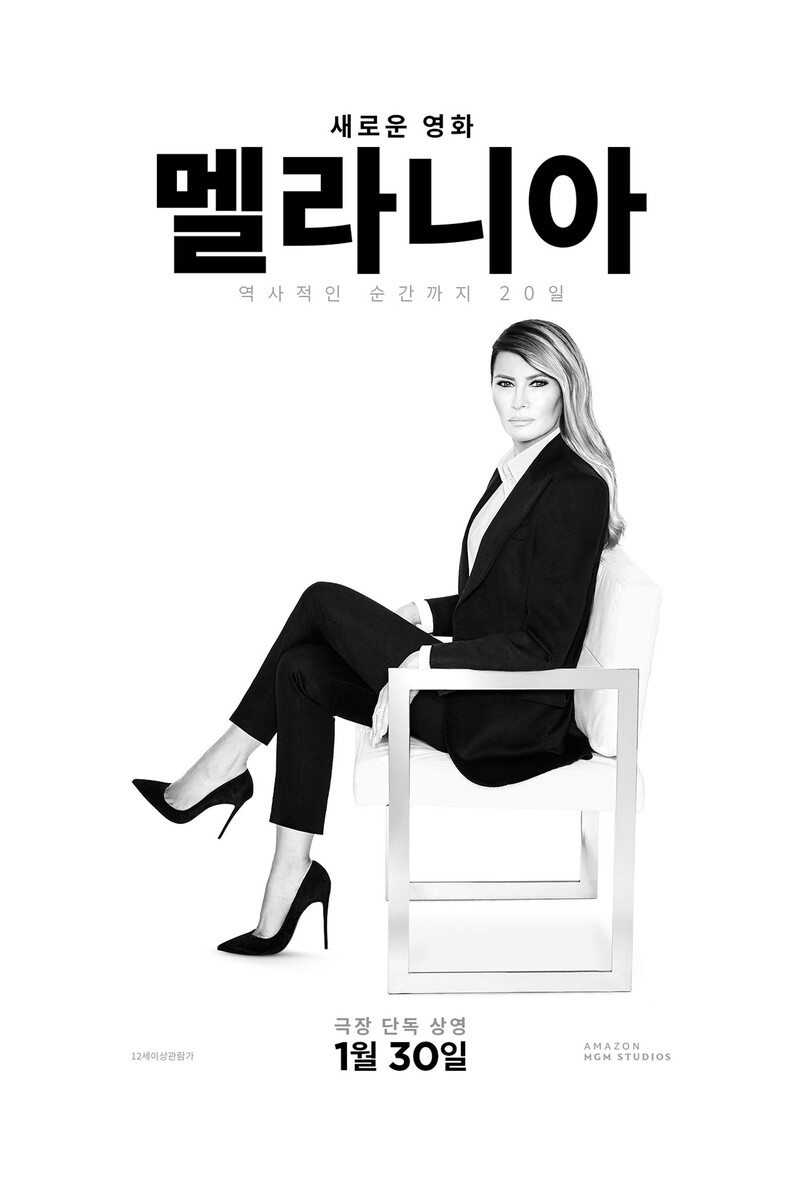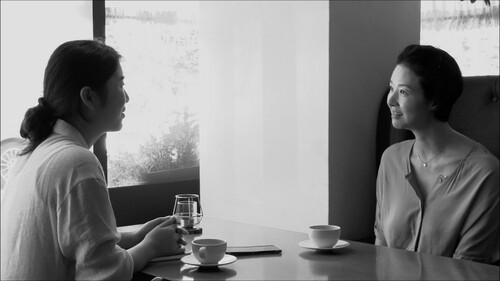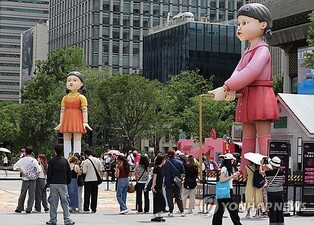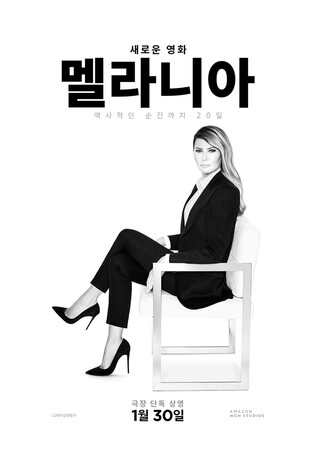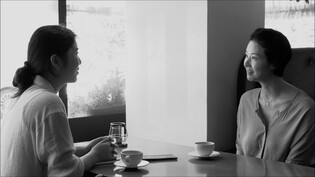by Ra Hwak Jin / Cha Min Kyung
[Episode 4] Ode to My Father (2014 Directed by Yoon Je-kyun)
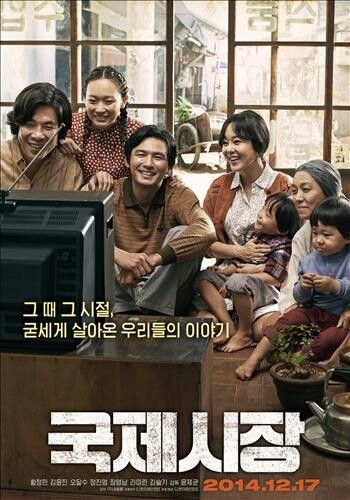 |
| ▲ This photo shows the movie poster for "Ode to My Father." (PHOTO NOT FOR SALE) (Yonhap) |
"Ode to My Father," released in December 2014, attracted a total of 14.14 million viewers until the following year, making it the fourth highest-grossing film in South Korean cinema history. Unlike the movie's Korean title, which translates to "International Market," derived from the actual international market in Busan, where the movie is set in, the English title "Ode to My Father" captures the message and theme more accurately.
The movie is told from an ordinary father named Deoksu (Hwang Jung-min)'s perspective and tells the story of his family as they leave their hometown in Heungnam, Hamgyeong-do due to the Korean War and settle in Busan.
During the Hungnam Evacuation, where numerous refugees were transported to Busan by U.S. Navy boats, Deoksu loses his younger sister. Deoksu's father, who stays behind to look for her, tells Deoksu to go to his aunt's imported goods shop and take care of his family, before being separated from each other. Since then, Deoksu sacrifices himself to earn a living and goes to Germany to work as a miner as well as serve the Vietnam War.
In hopes his father will come find him, Deoksu makes sure to protect his aunt's shop "Kkotbunine" within Busan's international market.
"Kkotbunine," which played a big role in maintaining the family's livelihood by selling U.S. military supplies and other miscellaneous goods during the country's turbulent history, is later just regarded as an old shop in the modern days. Deoksu, who insists to keep the shop despite its old age is also treated as a stubborn grandfather by his siblings and children.
◇"Ode to My Father" labeled as 'patriotic' movie after being viewed by several politicians
"Ode to My Father" conveys big events of modern history through Deoksu's character in an affectionate view rather than a critical view. The film was also praised as a "patriotic" film.
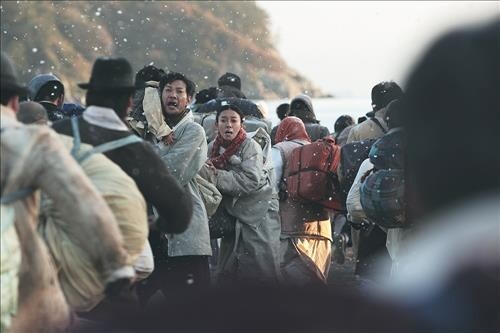 |
| ▲ This photo shows actor Jeong Jin-yeong (left) and actress Jang Young-nam (right), who both play Deoksu's parents, in the scene from "Ode to My Father" that portrays the Hungnam Evacuation during the Korean War. (PHOTO NOT FOR SALE) (Yonhap) |
The movie focuses on appealing to the public using the theme of family hardships. The film's theme, flow, humor, and the cast's performance are all portrayed in a way that attracts the audience. In the earlier part of the movie, the scene that depicts 100,000 refugees transporting to South Korea during the Hungnam Evacuation is spectacular. In addition, Deoksu and his friend Dalgu deliver comical aspects while scenes that show young children being taken away from their families makes the movie a tear-jerker. Although "Ode to My Father" runs for more than two hours, audiences are not left to be bored, but rather, struggle to hold back tears.
Since the film's release, many politicians have been scrambling to take advantage of the film's success.
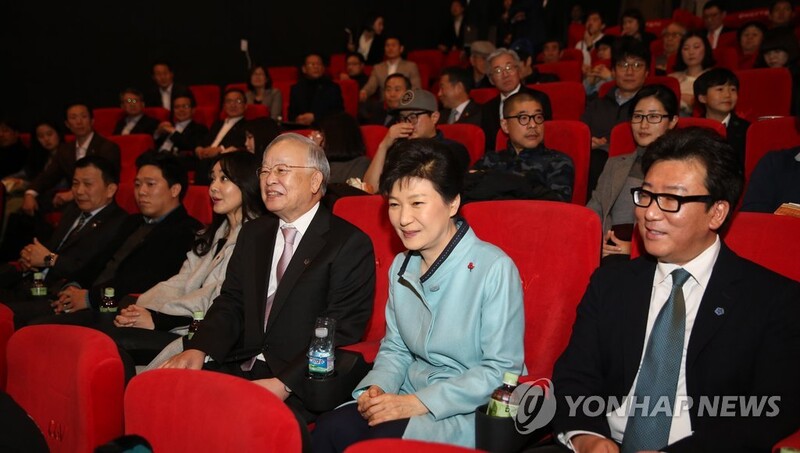 |
| ▲ This photo, taken on Jan. 28, 2015, shows former President Park Geun-hye, sitting next to director Yoon Je-kyun (right), preparing to watch "Ode to My Father" in a movie theater. (PHOTO NOT FOR SALE) (Yonhap) |
Former President Park Geun-hye made headlines after the media captured Park wiping her tears while watching the movie with the Ministry of Culture, Sports and Tourism. Since then, Park often used "Ode to My Father" as an example of converging traditional markets with Korea's culture. It was later found out during an investigation process that the movie's production company, CJ, was pressured by Park's government to release "patriotic movies." However, President Moon Jae-in, who was the leader of the main opposition party at the time, also publicly watched the movie and stressed, "The value of patriotism transcends both the conservatives and liberals."
◇ Director Yoon Je-kyun to take on Hollywood after succeeding two 10-million-viewed films
Before filming "Ode to My Father, director Yoon had already produced a smash-hit with blockbuster "Haeundae," becoming the first Korean director to have two films viewed by more than 10 million people.
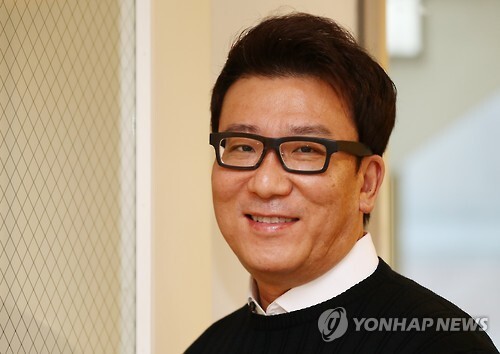 |
| ▲ This photo, taken on Feb. 12, 2017, shows director Yoon Je-kyun. |
Yoon is known to be outstanding for utilizing cliché Korean stories or events and succeeding to appeal to the audience. Within director Yoon's films, "Sex Is Zero" conveys comedy while "Haeundae" portrays a disaster situation, and "Ode to My Father" mixes modern history with cliché aspects, which ultimately draws the public's curiosity and enthusiasm.
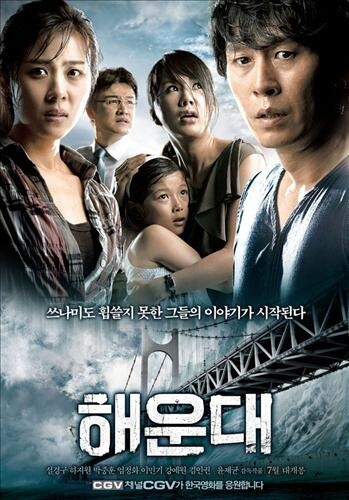 |
| ▲ This photo, shows the poster for mega-hit disaster film "Haeundae." (PHOTO NOT FOR SALE) (Yonhap) |
Director Yoon's latest work is a film version of the musical "Hero," which depicts Korean-independence activist An Jung-geun, who assassinated former Prime Minister of Japan, Ito Hirobumi, during the Japanese colonial era. "Hero" is considered an extremely rare musical film to exist within the Korean film industry, raising great expectations from the public.
 |
| ▲ This photo, provided by CJ ENM, shows American film producer Lynda Obst. (PHOTO NOT FOR SALE) (Yonhap) |
Furthermore, CJ ENM recently announced that Hollywood producer Lynda Obst, who directed Hollywood science fiction movie "Interstellar," will join hands with director Yoon to create a K-pop related movie, temporarily titled "K-Pop: Lost in America," drawing attention once again.
◇ Find the real historic figures in "Ode to My Father"
In addition to the main character Deoksu, who embodies the entire modern history of Korea, the movie features characters that resemble real notable figures in Korea's history.
The scenes where Deoksu naturally runs into late Hyundai Motor founder Chung Ju-yung, late designer André Kim, and wrestling hero Lee Man-ki, reminds the audience of "Forrest Gump," a movie based on modern American history.
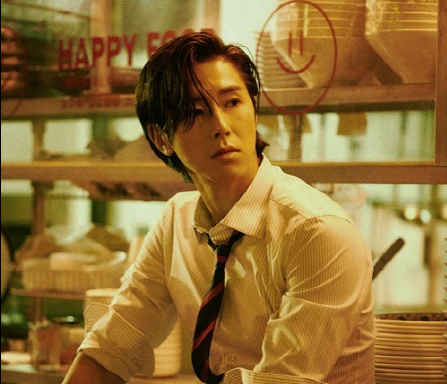 |
| ▲ This photo, provided by SM Entertainment, shows singer U-Know Yunho. (PHOTO NOT FOR SALE) (Yonhap) |
In particular, Nam Jin, a famous Korean singer who actually participated in the Vietnam War at the time, plays a significant part in the scenes related to the Vietnam War. The singer's role is played by K-pop boy group TVXQ's U-Know Yunho, who showcases a sly performance. Earlier this year, U-Know Yunho dropped out as the emcee for Mnet's idol contest program "Kingdom: Legendary War" after he was caught violating social distancing rules at an unauthorized entertainment bar.
◇ The fun of looking around actual filming sites in Busan
"Kkotbunine," which becomes the main "stage" within the movie, is an actual shop located in Busan's international market. The shop was used as the filming site and the signboard was changed to match the story. Now, the shop operates as a coffee shop with the same name and at the same place.
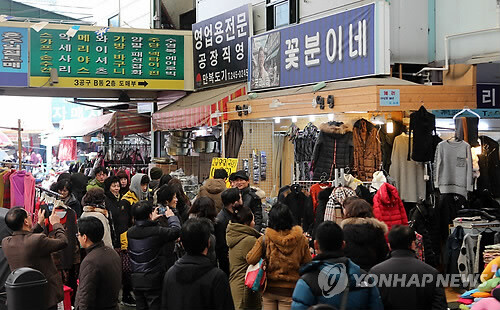 |
| ▲ This photo, taken on Dec. 28, 2014, shows people crowded around the Kkotbunine shop, which is the actual filming site for "Ode to My Father." (PHOTO NOT FOR SALE) (Yonhap) |
The Busan Tourism Organization also developed tourist courses, including major locations appeared in the movie like the international market and Yongdusan Park, making visitors in Busan feel as if they are in a scene from the movie.
It is also nice to see the Korea Broadcasting System (KBS) in Yeouido, Seoul which aired a special live broadcast, "Finding Dispersed Families," aimed to reunite Korean families that had been separated during the Korean War.
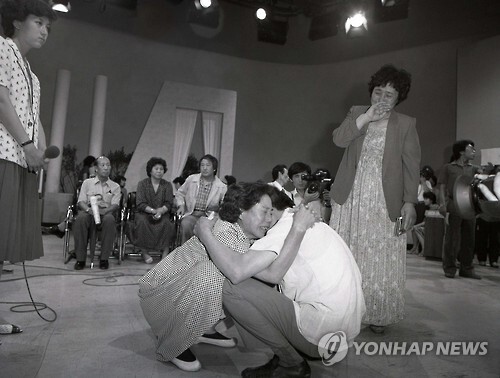 |
| ▲ This photo, provided by the National Archives of Korea, Seoul, shows reunited family members in tears on the set of "Finding Dispersed families." (PHOTO NOT FOR SALE) (Yonhap) |
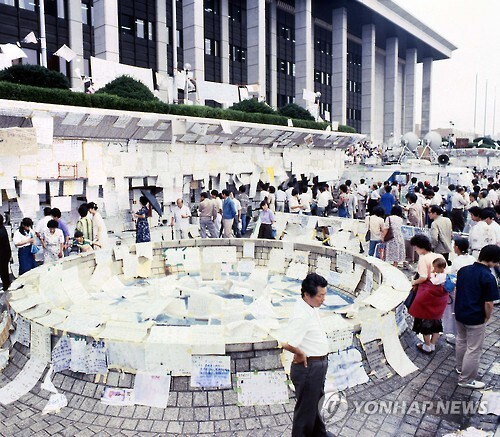 |
| ▲ This photo, provided by National Archives of Korea, Seoul,shows thousands of people standing outside KBS in 1980s searching for their family member's name, in hopes to be reunited one day. (PHOTO NOT FOR SALE) (Yonhap) |
While Germany and Vietnam were also major settings of the film, the scenes were actually filmed in the Czech Republic and Thailand.
◇ Indian remake of "Ode to My Father" also makes a big hit
In 2019, "Ode to My Father" was remade in India under the title "Bharat," which is an alternative name of India. Starring actor Salman Khan, the film earned huge success, making it one of the top five Indian films of the year. "Bharat" succeeded in catching the eye of Indian audiences by using similar historical events with Korea's modern history portrayed in "Ode to My Father." It is hard to ignore that a big factor in the movie's success came from the film's code suiting the patriotism of Narendra Modi's government as well.
(END)
(C) Yonhap News Agency. All Rights Reserved


















